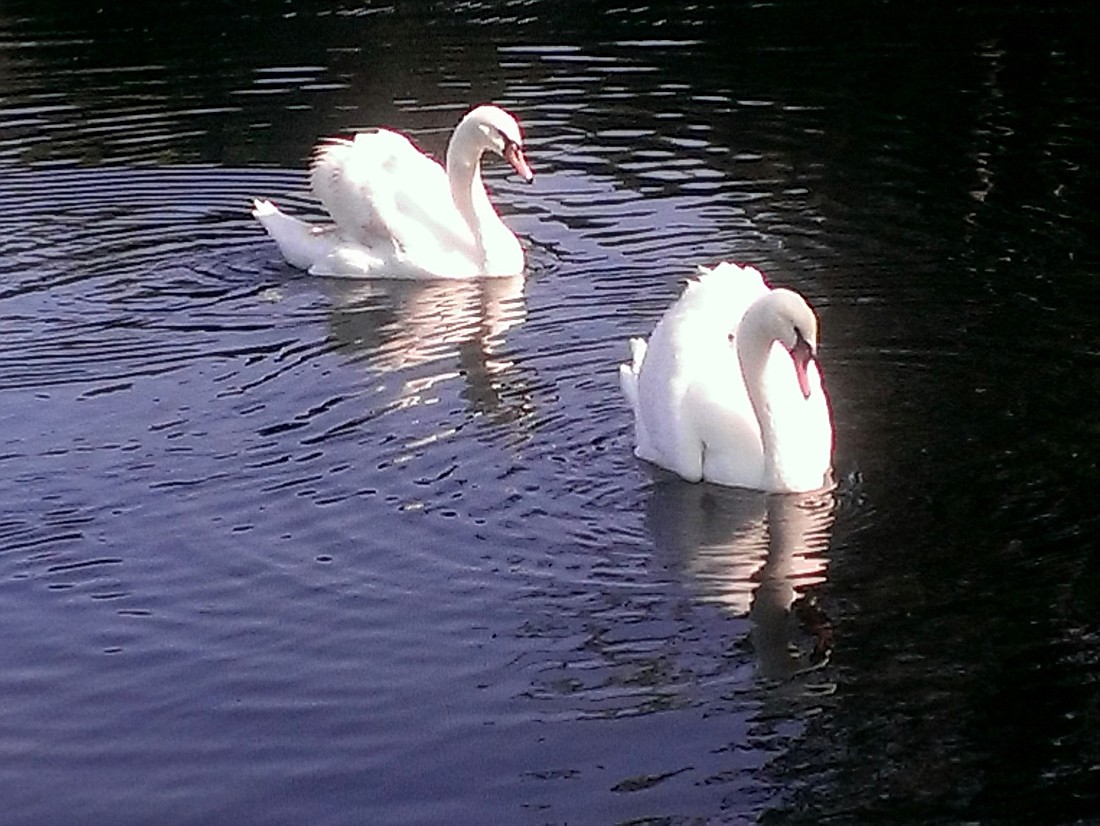- April 19, 2024
-
-
Loading

Loading

Longboat Key has two new pairs of lovebirds.
Swans Nik and Bello have been enjoying their new territory in the Harbourside golf course waters since late February. They are named for circus performers Nik Wallenda and Bello Nock.
Clare and Greta are thriving in the Islandside waters. They are named after swan supporters’ Hein Rusen and Bill Rainville’s wives.
But unlike the swan pairs that came before them, neither pair will produce a nest full of fuzzy white cygnets. That’s because Nik and Bello are males; Clare and Greta are females.
The couples are the first same-sex swan pairs unofficial swan steward David Novak matched together as part of a long-term plan to control the Key’s swan population. Novak placed a third male-female pair that is still unnamed in a Sarasota neighborhood that he declined to identify out of respect for the community’s privacy.
All six swans hatched last spring from Stan and Wendy’s nest.
“The mortality rate for cygnets is very, very high,” Novak said. “It’s astonishing to have six.”
Most cygnets fall victim to predators or their own parents that cull the flock and eliminate the weakest. If they survive to maturity — around seven or eight months — their parents will consider them a threat and chase them away.
The survival of all six cygnets made overpopulation a possibility on the Key. Swans are territorial by nature, and the island has seven territories that can each hold an adult pair.
But swans will mate with members of the same sex if paired together in the same territory, so Novak devised a plan for matching same-sex pairs in the remaining territories and relocating additional future cygnets.
Novak needed to capture each cygnet for medical treatment, pinioning and DNA testing to identify each bird’s sex. He devoted three weekends late last year to the capture, but caught just three cygnets.
He captured a fourth cygnet after it was brushed by a passing car and taken to Save Our Seabirds. But the last two cygnets remained in their parents’ territory, even after Stan became aggressive.
Novak captured one cygnet after cornering it in the bushes. He was on his bicycle and found the last young swan sleeping on the bank of a pond. He tip-toed behind him, grabbed him and rode home, holding the cygnet in one arm.
The final count: three males, three females — which is why Novak paired one male and one female in the Sarasota community. His goal is to have no new pairs that add to the Key’s swan population. But current male-female pairs Alan and Beverly, Stan and Wendy and Sully and Suzie could create as much as a decade’s worth of new cygnets.
Later in 2014, Novak plans to fill the remaining two territories and place any remaining cygnets where they can thrive.
Gracie Swan Foundation
In 2013, David Novak set up a fund through the Regal Swan Foundation to assist with swan care costs. Now, he has established a new nonprofit foundation that’s named for swan matriarch Gracie, who died in 2007. Contributions can be made to: The Gracie Swan Foundation, c/o SunTrust, 510 Bay Isles Road, Longboat Key, FL, 34228.
Contact Robin Hartill at [email protected]